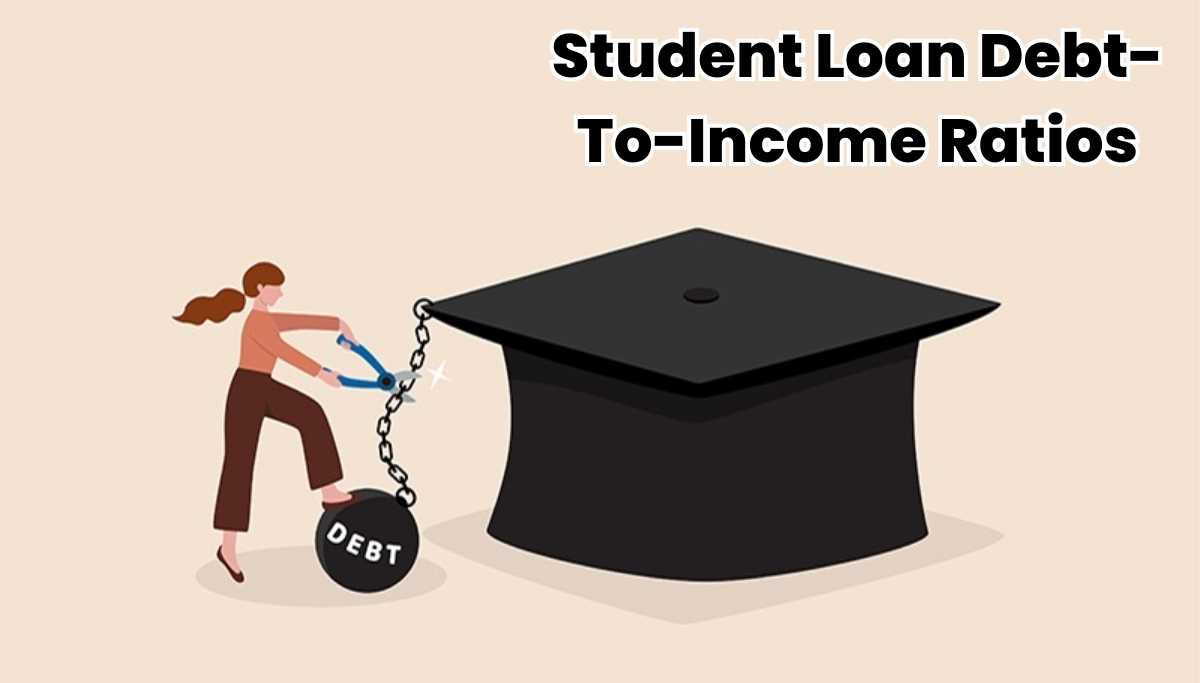Table of Contents
The debt-to-income ratio often surprises a lot of loan applicants who always thought of themselves as good money managers. I am not just talking about students here. Even in the case of people who wish to buy a house, finance a car or consolidate debts, this ratio determines whether they’ll be able to find a lender. Now you must be wondering what this ratio is and how is it related to your application for a student loan, right? Don’t worry, you will understand everything about DTI student loans in this blog: Student Loan Debt-to-Income Ratios.
What Is Debt-To-Income Ratio? | Student Loan Debt-to-Income Ratios
The debt-to-income ratio is the percentage of your gross monthly income that goes towards repaying your monthly debt payments. In other words, it is the percentage of how much debt you owe relative to your total income.
The debt-to-income ratio (DTI) is used as a measure of your financial health. This is why it is used by lenders to determine your borrowing risk.
In order to make it easy for you to understand the term, here is the mathematical expression for the same.
Also Read: Right and Responsibilities of a Student As a Borrower
Understanding Debt-to-Income Ratio With Student Loans
Knowing the mathematical expression isn’t sufficient. Understanding the actual meaning of debt-to-income ratio student loans is also necessary. So let’s see what it means.
A low debt-to-income (DTI) demonstrates a good balance between debt and income. It indicates stable and sufficient income relative to debt servicing and this makes you more attractive as a borrower.
For example, if your DTI ratio is 16%, it implies that 16% of your monthly gross income goes to debt payments every month. This is classified as a low DTI ratio which is appreciable. Conversely, a high DTI ratio signals that you have too much debt for the amount of income earned each month.
How Do Lenders Use DTI Ratio? Student Loan Debt-to-Income Ratios
Lenders prefer borrowers who have a low debt-to-income ratio. A lower debt-to-income ratio increases the amount you can afford to borrow. Significantly reducing your debt-to-income ratio can increase your eligibility for a private student loan.
Read About Abroad Education Loan
What is a Good Debt-to-Income Ratio? Student Loan Debt-to-Income Ratios
As mentioned above, borrowers with low debt-to-income ratios can afford to repay their loans without experiencing severe financial stress. They are more likely to manage their monthly debt payments effectively. As a result, banks and financial credit providers favour low DTI ratios before issuing loans to a potential borrower. The preference for low DTI ratios makes sense since lenders want to be sure a borrower isn’t overextended, meaning they have too many debt payments relative to their income.
For student loans, it is best advised to have a student loan debt-to-income ratio that is less than 10%. A maximum of 15% may be good enough provided you do not have many other types of loans. It is the rule of thumb that your total student loan debt should be less than your annual income.
Long story short, a low debt-to-income ratio is always better when seeking a new loan. Essentially because it means you can afford to repay more debt than someone with a high debt-to-income ratio.
Student Loans And Debt-to-Income Ratio
In the process of getting a student loan for higher education, the DTI ratio plays a critical role. Banks and lenders will calculate your DTI ratio to assess whether you are an eligible borrower or not. A DTI ratio of greater than 50% pushes you in the red zone, making it difficult for you to secure loans.
However, you must know that UniCreds can help you cross all the hurdles in your application for procuring a student loan. UniCreds is a one-stop solution for all your study abroad needs and it is the leading brand in providing education loans. If you are also still searching for student loans then all you have to do is fill this form➡️
Even when you plan on refinancing your student loans, you will be required to show a low debt-to-income ratio. Your credit score might seem like the be-all and end-all when applying for student loan refinancing but even with a solid credit history and cash flow, you could be denied funding. The reason would be a higher debt-to-income ratio. So, it is necessary to have a low debt-to-income ratio. Don’t worry if you are unsure of how to reduce your DTI ratio. This article has got you covered.
How Can You Improve Your DTI Ratio
The last section in our blog on Student Loan Debt-to-Income Ratios is about how you can improve your DTI ratio. A little mathematical understanding will tell you that in order to lower your debt-to-income ratio you will need to either increase your income (increase the denominator) or decrease your debt repayments (decrease your numerator). This leaves you with the following alternatives.
- Ask For A Raise
It will directly increase your gross monthly income.
- Earn More Through Side-Hustling
Another way to go about the first option is to have a secondary source of income. There are several ways to earn in this modern era and you could lay your hands on them to generate a side income. Freelancing as a student would be a great option.
- Pay Your Debts ASAP
There’s no better alternative than aggressively paying off your debts as soon as possible.
Read More: Snowball Vs. Avalanche: Which Debt Payoff Method Is Best?
Thank you for reading this blog ‘Student Loan Debt-to-Income Ratios’. If you enjoyed reading this blog and would like to continue reading more about student loans then do check out our following blogs.










0 Comments